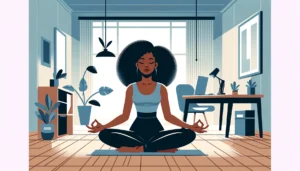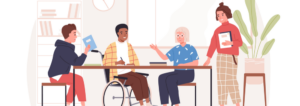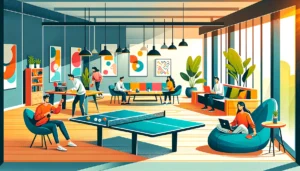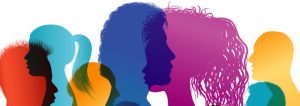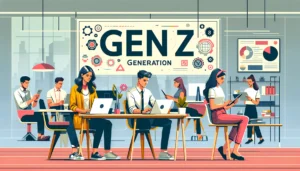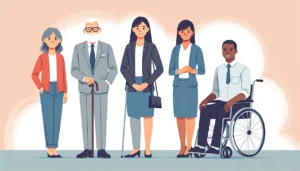Engage, negotiate and influence: women with disabilities leading change
- 6 Min Read
As a woman with visual impairment, I would like to be recognised, respected and treated like any other person in the workplace. I would like the opportunities to be able to deliver my best work and contribute on an equal basis with others.
- Author: Gertrude Oforiwa Fefoame
- Date published: Mar 7, 2018
- Categories

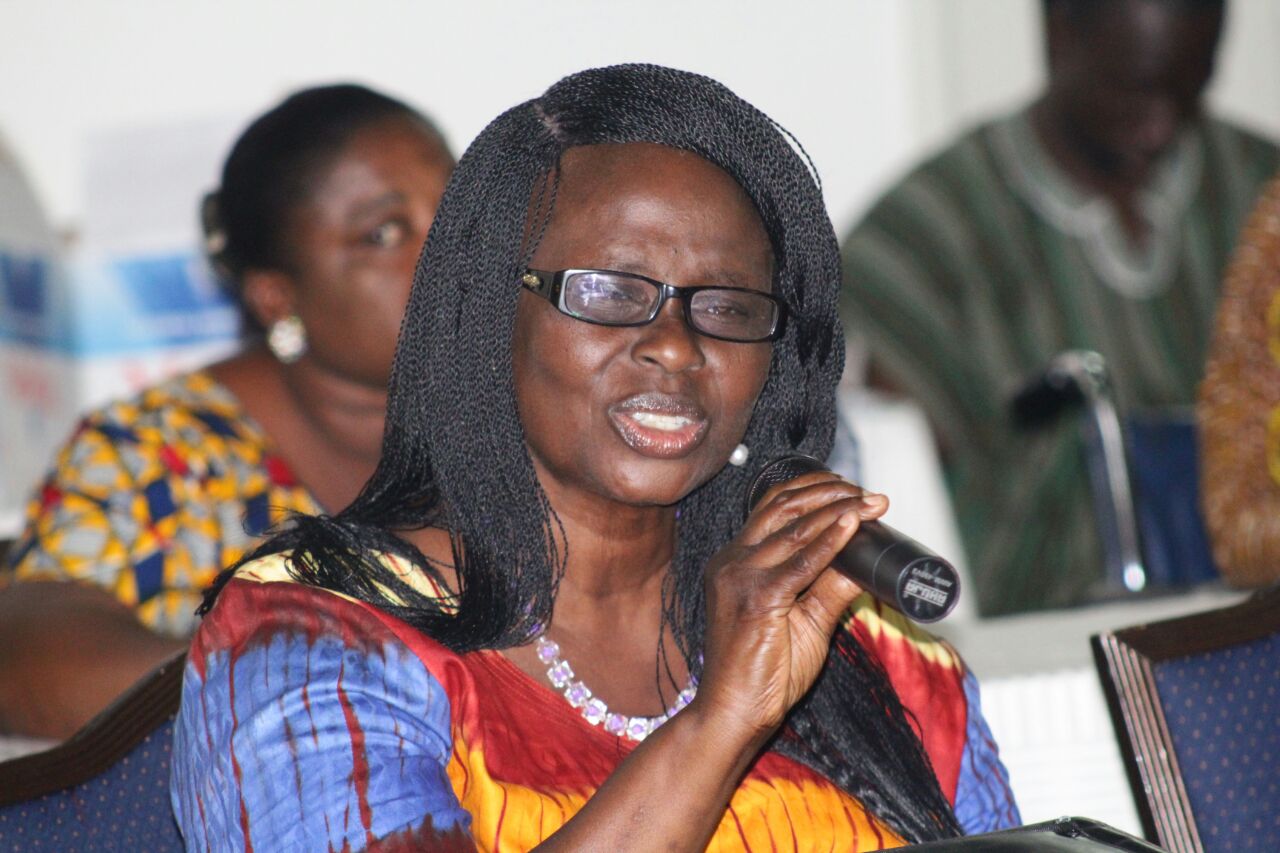
Many organisations now have disability/inclusive policies in place to ensure that there is satisfactory environment for women with disabilities to participate equally at the workplace. However, sometimes these policies are not implemented or not implemented effectively.
It comes down to understanding and attitude.
What good is a disability policy if employers don’t actually ‘get’ inclusion? If employers do not have a proper appreciation of what marginalisation is and for that matter what inclusion should entail?
Advice to employers
Every organisation is different, but here are some general tips for charities or companies looking to make their workplace inclusive:
- Appreciate that every person with a disability is different. Any policy you have needs to give room for individuals to manage their own work in a way that respects their diversity. Two people may have the same disability but have learnt to deal with it in different ways, so be ready to treat each person as an individual. This requires flexibility.
- All employees need to undergo an orientation process to understand what disability is, and what the benefits of an inclusive society are. Once they have the information, they then need to understand the benefits for themselves and the organisation. If you do this you will find that people will take ownership of these issues themselves.
- Negative attitudes exist everywhere. I’ve found it doesn’t matter whether you are in a church, an African Union meeting or a bar; we need to be honest that everyone is human. Some people are afraid or reluctant to talk about disability and others don’t think it has anything to do with them. Genuine leadership is needed to draw people’s attention so they know inclusion is in the interest of all… Inclusion must be in the centre of evertything.
- Policy implementation needs to be monitored to have the needed impact. We have found disability and attitudinal surveys are very helpful to achieve this.
- Change doesn’t come easily and one-off activities don’t work. It’s a continual process that you need to keep up in place. Be proactive and passionate.
“I came into the workforce empowered, using as much support as was available and with the idea that I could negotiate through issues. Throughout my working life, this has helped me find ways around barriers to get the kind of environment I need to deliver my work.”
Advice to women with disabilities
A few workplaces are well on their way to achieving inclusion, some are still building up to it, and a lot more are simply not there yet.
As society has yet to rise to the challenge, I would give the following advice to any woman with a disability:
- Be confident.
- Gain knowledge about your rights and responsibilities.
- Make sure you have knowledge about the support available to you and be ready to influence and negotiate within your organisation.
- Remember, unless the appropriate systems are in place, you are going to need to engage, negotiate and influence throughout your career. You will often have to educate employers on your requirements.
Challenges women with disabilities face in employment
Not every woman with a disability has the required exposure and access to networks for support. The barriers are real. There are reports of violence, abuse, and lack of career growth faced by some women with disabilities in employment. There are employers who will not employ women with disabilities, others may employ women with disabilities but will not provide the needed environment for optimum performance. We must put in place systems that identify the needs and provision of mechanisms so that women with disabilities have the opportunity to be in fulfilling employment.
My story as a woman with visual impairment
Whilst growing up as a young person with visual impairment, I experienced stigma and discrimination, for example, other students teasing me, some isolating me, lack of educational materials in appropriate formats, some teachers ignoring me in class and some people showing pity instead of empathy. I considered this inappropriate and wanted to bring about change. Hence, I got involved in Ghana’s disability movement as a young student which equipped me with knowledge, skills and support networks.
This meant that by the time I applied for jobs I already had a better understanding of my own rights and a good awareness of what I required from an employer. I came into the workforce empowered, using as much support as was available and with the idea that I could negotiate through issues. Throughout my working life, this has helped me find ways around barriers to get the kind of environment I need to deliver my work.
Being part of a movement takes a lot of self-discipline and initiative; you have to give up your time, and devote your energies and skills, but you also take something for your own journey out of it. It is worth it.
Author
Gertrude Oforiwa Fefoame
A special education teacher by training and a blind person herself, Gertrude is well placed to speak out on the issues that affect people with disabilities and has a particular passion for the relationship between gender and disability. Gertrude is also the current Vice-Chairperson of the International Council for Education of People with Visual Impairment (ICEVI Africa). She has been working for Sightsavers since 2006 to ensure the charity incorporates the rights of persons with disabilities across Africa and Asia. Her contribution to the rights and inclusion of persons with disabilities has led to a series of awards, including ‘Excellence Grand Medal’ award from the President of Ghana in 2007 for her contributions to Teacher Education and ‘Volunteerism and a Media’ award in 2010 from TV Africa in Ghana for her contributions to gender equality. Her latest award came in 2011 from the Ghana Blind Union Women’s Committee, for her contributions to women’s empowerment and persons with disabilities.
This June Gertrude will be running for the United Nation’s Committee on the Rights of Persons with Disabilities (CRPD) after being nominated by Ghana’s government. The CRPD is a body of 18 independent experts which monitors implementation of the UN Convention on the Rights of Persons with Disabilities around the world.


